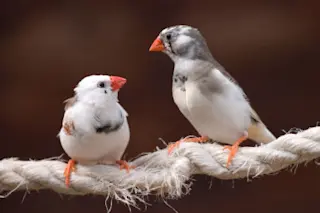Language seems to set humans apart from other animals, but scientists cannot just hand monkeys and birds an interspecies SAT to determine which linguistic abilities are singularly those of Homo sapiens and which we share with other animals. In August neuroscientists Kentaro Abe and Dai Watanabe of Kyoto University announced that they had devised the next-best thing, a systematic test of birds’ grammatical prowess. The results suggest that Bengalese finches have strict rules of syntax: The order of their chirps matters. “It’s the first experiment to show that any animal has perceived the especially complex patterns that supposedly make human language unique,” says Timothy Gentner, who studies animal cognition and communication at the University of California, San Diego, and was not involved in the study.
Finches cry out whenever they hear a new tune, so Abe and Watanabe started by having individual birds listen to an unfamiliar finch’s song. At ...















